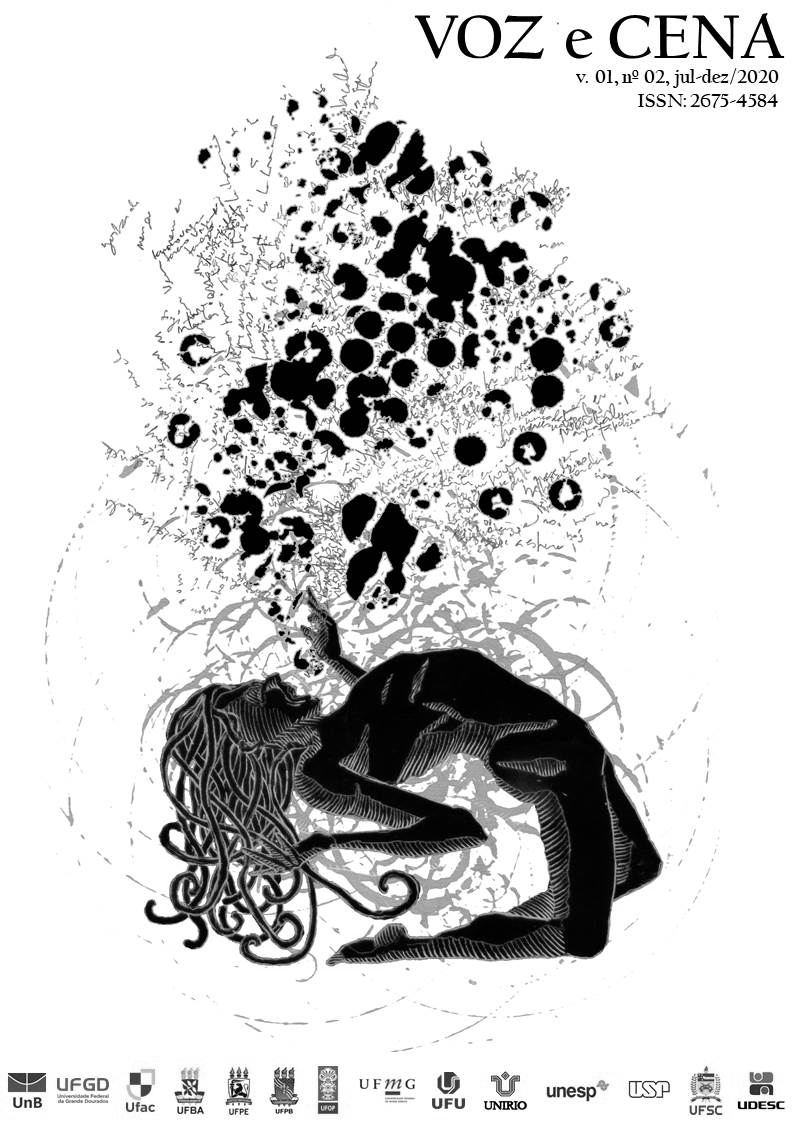Proximity tests
reflections and experiences on music education in Italy at the time of social distancing
DOI:
https://doi.org/10.26512/vozcen.v1i02.34452Keywords:
Music Education, COVID-19, Distance learning, Embodied Cognition, Instrumental and Vocal TeachingAbstract
The text proposes a reflection on music education in Italy in the situation of social distancing due to the COVID-19 pandemic. Analyzing the contexts of formal education and the challenges posed by distance learning, it then reviews some concrete experiences of music teaching. The purpose of the paper is to argue the essential need for proximity between students and teachers in music education.
Downloads
References
AGAMBEN, Giorgio. A che punto siamo? L’epidemia come politica. Macerata: Quodlibet, Macerata, 2020.
BERTAZZONI, Luca; FILIPPA, Manuela; RIZZO, Amalia Lavinia (a cura di). La musica nella relazione educativa e nella relazione di aiuto. Quaderni di Pedagogia e Comunicazione Musicale, Macerata, EUM, 6, 2019.
BIASUTTI, Michele; CONCINA, Eleonora; WASLEY, David; WILLIAMSON, Aaron. Music regulators in two string quartets: a comparison of communicative behaviors between low-and high-stress performance conditions. Frontiers in Psychology, Lausanne, 7, 1229, August, 2016.
BIGET, Arlette. Une pratique de la pédagogie de groupe dans l’enseignement instrumental. Paris: Cité de la musique, 1998.
FRESCHI, Anna Maria. Triangolazioni: neuroni specchio e didattica strumentale in contesti collettivi. Musica Domani, Bologna, SIEM, 173, dicembre 2015, pp. 12-23.
JOHNSON, Carol; SCOTT, H. Hawley. Online Music Learning: Informal, Formal, and Steam Contexts. International Journal on Innovations in Online Education, Danbury (CT), Begell House, July, 2017.
LEMAN, Marc. Embodied Music Cognition and Mediation Technology. Cambridge (Massachusetts): MIT Press, 2008.
PALARETI, Francesca. Didattica a distanza: strumenti e criticità . Firenze: Bibelot, 26, 1, Gennaio-Aprile 2020.
RIZZO, Amalia Lavinia. L’insegnante musicista di sostegno come motore per l’inclusione scolastica nella scuola secondaria di I grado: progettazione, didattica e valutazione. Quaderni di Pedagogia e Comunicazione Musicale, Macerata, EUM, 6, 2019, pp. 67-100.
ROHMERT, Gisela. Il cantante in cammino verso il suono. Leggi e processi di autoregolazione nella voce del cantante. Treviso: Diastema, 1995 (edizione originale Der Sänger auf dem Weg zum Klang. Köln: Otto Schmidt, 1992).
SCHAFER, Raymond Murray. The Tuning of the World, New York: Knopf, 1977.
STERN, Daniel Norman. The Interpersonal World of the Infant: A View from Psychoanalysis and Developmental Psychology. New York: Basic Books, 1985.
TOSTO, Ida Maria. La voce musicale. Orientamenti per l’educazione vocale. Torino: EDT, 2009.
TURKLE, Shelley. Alone together. Why we expect more from technology and less from each other. New York: Basic Book, 2011.
Downloads
Published
How to Cite
Issue
Section
Categories
License
Copyright (c) 2020 Voz e Cena (Voice and Scene)

This work is licensed under a Creative Commons Attribution 4.0 International License.
Readers are free to download, print and use the articles published in the journal, as long as there is always explicit mention to the authors and to the Voz e Cena journal and that there is no change in the original work. Any other use of the texts must be approved by the authors and the journal. By submitting a paper to Voz e Cena journal and having it approved, the authors agree to assign, without remuneration, the rights of first publication and the permission for the journal to redistribute that article and its metadata to the indexing and reference services that its publishers deem appropriate.
This work is licensed under a Creative Commons Attribution 4.0 International License.![]()


7.PNG)


